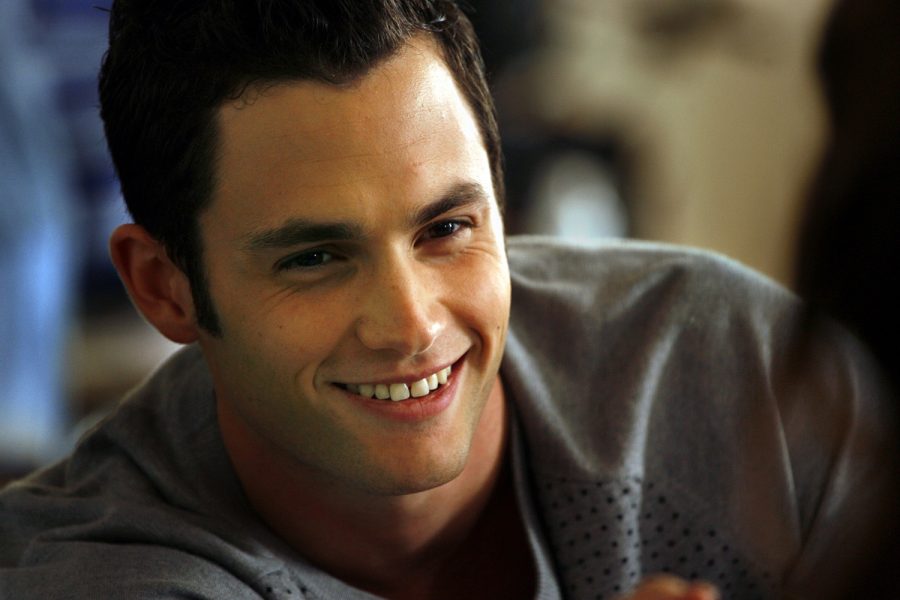Opinion | “You” and the violence of attraction
Carolyn Cole/Los Angeles Times/TNS
Penn Badgley plays the serial killer Joe on the Netflix show “You.”
January 8, 2020
This column contains spoilers for seasons one and two of “You.”
Here we are, having the same exact conversation we had last year when heartthrob Zac Efron played Ted Bundy in Netflix’s “Extremely Wicked, Shockingly Evil, and Vile.” If you haven’t been following entertainment news lately or watching endless hours of Netflix — come on, don’t lie to me — you maybe haven’t heard that Penn Badgley of “Gossip Girl” plays a serial killer named Joe in Netflix’s show “You,” which recently launched its second season. And, well, he is quite attractive.
“You,” a romance-turned-crime-thriller, has garnered a mass of fans who have taken to social media to proclaim their love for Joe. Joe as a character, taking hints from real-life murderers like Ted Bundy and Chris Watts, hides his predatory perversion behind thick layers of charm, wit and a great jawline. He’s undeniably a dime, and one who reads classic literature to boot. Online news outlets and magazines, however, are not having this celebration of Joe, and after reading article after article about the “glamorization” of predators, it became apparent that the discourse here rarely dives deeper than urging women to stop finding Joe attractive because he’s a serial killer.
The discourse around this show has largely been deriding women for saying Joe is attractive and not expanding upon this. The worry seems to be that finding Joe hot reflects us putting on our rose-colored glasses — if we find him attractive, we will let our guard down and romanticize his actions. The situation is not that black and white, and the current discourse trivializes the complexities of why women fawn over characters like Joe. The talk around this show has painted our attraction as sick and is a sign of ignoring the blatantly obvious — duh, he’s fictional a serial killer. He is not a viable option.
Those who agree with the “don’t feel attraction to Joe” discourse are unaware of the entire point of the show. Right off the bat, it must be said that this situation is not exactly the same as the “Extremely Wicked, Shockingly Evil, and Vile” controversy because in this case Joe is an entirely fictional character. Ted Bundy was a real person who tortured and killed real women, leaving broken families in his wake to this day. Joe has not and cannot have that effect on anyone who exists outside a screen. “You” as a show doesn’t function with any hint of documentary-like material behind it — instead, it plays out as a biting satire of rom-com leading men, pointing out how nonchalant we’ve become about creepy masculine behaviors due to media grooming.
Joe, on the surface level, is the perfect romantic lead. He says the right sweet nothings at the right time, he has gorgeous eyes, he plans picnics. We’re supposed to be attracted to him, that’s the point. “You” pushes us as viewers just as much as it pushes Joe — to see how far he can go before we finally realize he’s a monster, before we finally grasp that we’ve been groomed by film and television to find a good chunk of his actions tolerable.
Because those commenting on the show have missed this point entirely, their discourse brings to light some vast misunderstandings of gendered social politics. A double standard exists regarding who can find whom attractive, and what the attractor is allowed to do to the other party. This is the weaponization of physical attraction. It exists primarily to the detriment of women.
For female-presenting people, our whole lives are dictated by notions of “hotness,” notions in which we are rarely the subject but the object. “Hotness” is used to explain away crimes that men commit — “she was wearing a short dress,” “her makeup made her look like a hooker,” etc. “Hotness” is used to slut-shame, to measure intelligence and worth. Many toxic masculine definitions of “hot” diminish women, turn us into body parts. And this male attraction leads to real-life violence.
“In the United States, more women are killed by their intimate partners than by any other group of people,” according to a study by the Huffington Post that cross-referenced the Gun Violence Archive.
In contrast, women’s ideas of “hotness” and what to do with these ideas rarely hurt anyone. When we find Joe, or a Joe-type in the real world, hot, he is not in harm’s way in the same way women can be. Statistically, women do not hurt men the way men hurt women. Just thinking Joe is attractive isn’t the same as stalking the man, which is what he does to women on the show. A woman finding Joe hot doesn’t have the same potential consequences that a Bundy-type man finding a woman hot does.
Women are taught from an early age to be constantly on guard for danger around us. We are catcalled and followed and harassed and sexually assaulted far too often to somehow forget the danger men pose simply because of a TV show. When we find Joe attractive, we’re not finding him attractive in a naive way. We can see what’s right in front of us — that he would be a danger here in the real world. But “You” isn’t the real world. It’s fiction.
This is perhaps one of the reasons why women are so drawn to serial killer mythos. Listening to a true crime podcast or watching a movie doesn’t put us in physical danger. Here, with shows like “You,” we can explore what harms us in a fashion that doesn’t get us locked in a heat-controlled bookcase in a storage locker. Watching a man like Joe in the comfort of our own homes, safe behind a screen, is a way for us to explore our reactions to violent, attractive men without putting ourselves in danger.
That’s only one of many reasons we’re so into this, though. Discourse around shows like “You” doesn’t tend to dive into the multifaceted layers of female serial killer obsession. With real-life cases like Bundy, it can be a case of wanting to fix a problematic man, that nurturing we’re taught to do as children. Or it can be that we’ve been victims of abuse, and finding a man who’s sure to abuse us is a way to stay in the only cycle of love we’ve ever known. On the flip side of that, victims of abuse may also be drawn to locked-up killers because they have complete control over the relationship. Some women are attracted to the fame these killers garner and want a slice of it for themselves. Some want a fantasy relationship, some want to explore the dark corners of their psyche. Whatever the reason, it’s not because women are dumb or crazy, as discourse surrounding “You” tends to imply.
We are all fascinated by what can kill us. Men are allowed to lust over machine guns and pocket knives and tanks but women aren’t allowed to want a fictional serial killer because apparently that muddies the water. When men lust for an object of their demise, they don’t want the objects to kill them — neither do we.



